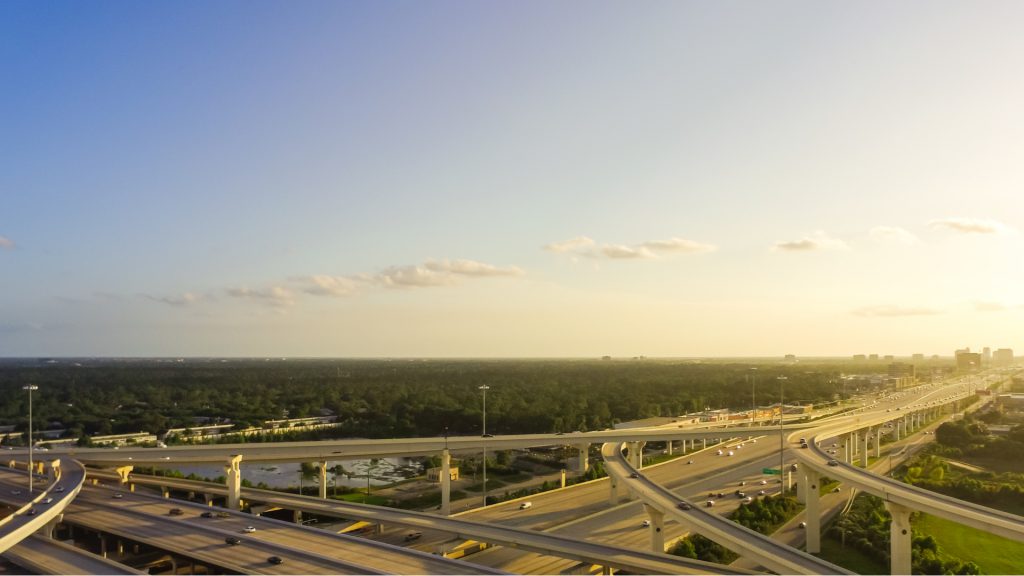Current low fuel prices make it a “good time” to increase motor fuel taxes in order to fund transportation projects, according to a Ball State University Center for Business and Economic Research report released Feb. 15. The study concluded that businesses and residents in Indiana do not necessarily view increased taxes in order to improve public services as a negative thing. Read More.
***
$1.3 Billion in Federal Grants
The U.S. Department of Transportation is soliciting applications for the Fostering Advancements in Shipping and Transportation for the Long-term Achievements of National Efficiencies (FASTLANE) grant program in order to finance critical freight and highway projects nationwide. The FAST Act authorized $800 million in grants in Fiscal Year 2016, with 25 percent of the money allocated for rural projects and 10 percent for smaller projects. Read More.
Another $500 million to fund capital improvement construction will be distributed through Transportation Investment Generating Economic Recovery (TIGER) grants. The competitive program allocates money to projects that improve the economy and access to “reliable, safe, and affordable transportation for communities.” Read More.
***
$416 Million in State Funding Decreases
California’s Board of Equalization lowered the state gas tax by 2.2 cents-per-gallon due to the variable-rate formula, resulting in a loss of $328 million for transportation infrastructure in 2017. Read More.
Due to a $69 million shortfall in anticipated revenue from the state gas tax and transportation-related fees, the North Dakota Department of Transportation announced Feb. 22 it is reducing temporary employee positions. Read More.
After $18.9 million was diverted from the Louisiana Department of Transportation and Development in order to reduce a state revenue shortfall, the department will still be able to continue with planned projects thanks in large part to matched federal funds. Read More.
***
State Legislatures
Idaho senators voted Feb. 24 to amend last year’s transportation funding legislation to remove a recurring annual fee on hybrid vehicles. The bill now goes to the House for review. Read More.
A filibuster of a transportation investment discussion continues in South Carolina’s Senate. Read More.
As Mississippi lawmakers contemplate increasing the gas tax to pay for transportation construction projects, the Mississippi Economic Council is pitching a 10-year, $375 million funding plan—with $300 million allocated for state repairs, and the remainder for local and county repairs. Read More.
Wisconsin Assembly Speaker Robin Vos (R-Rochester) said his biggest regret of the legislative session was the failure of state lawmakers to find a long-term transportation funding solution. It is “not conservative … to not fix something until it is so broken we have to spend a lot more to repair it,” he said. Read More.
The Indiana Senate Appropriations Committee has removed gasoline and cigarette taxes increases to fund transportation from House Bill 1001. The Senate committee’s proposal maintains a $100 fee on electric vehicles, a $50 fee for hybrid vehicles, and redirecting an existing wheel tax from the general fund to the transportation fund. Read More.
***
Advocacy
Tennessee Transportation Commissioner John Schroer said that increasing revenue to improve transportation infrastructure is essential for the state’s economic prosperity. The commissioner noted that the 2015 transportation funding increase in neighboring Georgia and subsequent infrastructure improvements put Tennessee in danger of falling behind the competition. Read More.
With state legislators affirming that transportation funding will be a critical issue once the regular legislative session begins March 8, the Minnesota Transportation Alliance has stepped up their campaign with billboards targeting projects that could be stalled or canceled due to a lack of funding. Read More.
Facing uncertain funding as well as a potential transit strike, New Jersey transportation advocates protested for increased transportation revenue in Newark Penn Station on Feb. 24. Read More.
A new calculator launched by the Missouri Department of Transportation allows residents to see where money spent on fuel taxes was sent and how it was invested. The calculator also shows the impact a proposed 1.5 cents-per-gallon increase would have on their wallets. Read More.
***
Did you miss these stories?
- A new report from NCSL provides a comprehensive analysis of state public-private partnership legislation. Read More.
- Three advocates discuss how their states increased transportation revenue without raising the gas tax during a Feb. 24 TIAC webinar. A recording of the webinar is available. Read More.

